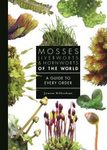Textbook Handbook / Manual
By: Richard Karban(Author), Mikaela Huntzinger(Author), Ian S Pearse(Author)
213 pages, 6 b/w illustrations
![How to Do Ecology How to Do Ecology]()
Click to have a closer look
About this book
Customer reviews
Biography
Related titles
About this book
The essential insider's guide for ecologists at all career stages – now completely updated and expanded
Most books and courses in ecology focus on facts and concepts but do little to explain the process of research. How to Do Ecology provides nuts-and-bolts advice for organizing and conducting a successful research program. This fully updated and expanded edition explains how to ask and answer your own research questions using compelling study design and appropriate stats. Ecology doesn't take place exclusively outdoors, so the book shares invaluable insights on topics such as identifying your goals, developing professional relationships, reading efficiently, and organizing a field season. Because the currency in ecology is publications, it also suggests effective ways to communicate your ideas through journal articles, oral presentations, posters, and grant proposals. This incisive handbook makes explicit many of the unstated rules that ecologists follow and serves as a practical resource for meaningful conversations about ecology.
This new edition includes:
- Expanded emphasis on collecting and interpreting observational data
- An innovative new workshop for generating and evaluating creative research questions
- Helpful tips on developing the skills most important to students, navigating your career path, writing efficiently, and more
Customer Reviews
Biography
Richard Karban is a professor of entomology in the Graduate Group in Ecology and Center for Population Biology at the University of California, Davis. His books include Plant Sensing and Communication. Mikaela Huntzinger is a research associate at the University of California, Davis, where she also runs workshops and courses on graduate education. Ian S. Pearse is a research ecologist at the US Geological Survey in Fort Collins, Colorado.
Textbook Handbook / Manual
By: Richard Karban(Author), Mikaela Huntzinger(Author), Ian S Pearse(Author)
213 pages, 6 b/w illustrations
"There are many books giving advice on how to "do" ecology but they are about the basic concepts of the discipline. This makes sense as the first part of the journey towards being an ecologist is knowing the subject. Once you've done that, there is still a great deal to learn that is not necessarily in the actual field of the subject. This slim text takes the point literally – how do you do ecology, as in get your ecology career started? [...] There is a lot of hard-won wisdom in these pages. Not technically difficult or conceptually challenging but a huge range of things you need to be aware of if you want to start a career. One to leave in the undergraduate coffee room!"
– Paul Ganderton, The Niche 55(2), summer 2024
Reviews of previous editions:
"[A] refreshing, concise work aimed primarily at those contemplating or performing ecological research studies. The authors' approach will be equally beneficial to those in various other areas of study [...] Highly recommended."
– Choice
"This book is a wealth of information for beginning professionals."
– Erika V. Iyengar, American Biology Teacher
"How to Do Ecology contains much of the sage advice that good supervisors have been giving their postgraduate students for years [...] [I]t's absolutely correct and vital information."
– Robyn K. Whipp, Austral Ecology
"Reading this book feels like having a good talk during a long walk in the woods with a wise and experienced advisor who really has the time to distill and share years of thinking about how ecological research works. Get it, and keep it handy, and your work will be the richer and more successful for it."
– Jessica Gurevitch, Stony Brook University
"This 'concise handbook' is excellent in helping the targeted audience, as well as land managers, amateurs, and others in understanding how ecological research is done."
– Dan R. Kunkle, Wildlife Activist



































